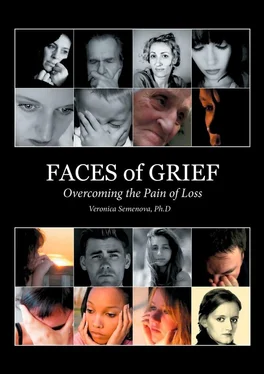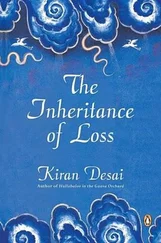This stage is the trickiest stage of all. People may think they have accepted their loss, when really they haven’t. In fact, every big milestone and every major event in life will trigger grief again, over and over. This is normal, as it is hard (or even impossible) to accept that someone so important and dear to you is gone. Some people will claim that they have accepted the loss immediately after their loved one has passed away, while others will come to this stage only after passing through all the other stages first. No matter what the timing, the real manifestation of acceptance is the calmness a grieving person will experience as they move on with their life, discovering meaning in continued living and finding the strength and motivation to move on. Acceptance of loss does not mean forgetting the person who passed away or changing your life to avoid any reminders of the loss. Acceptance is more about integrating the loss into your life and moving on while holding onto the heritage of the person you lost and using this as your strength.
Death is a given from the moment we are born. It is the one sure thing that will happen to every one of us, no matter our social position, health status, education, or political values. Grief is strengthened by the realization that we are not immune from death. Awareness of one’s mortality is a conscious perception; an anticipation of the inevitable, which human beings often fear to embrace.
Integration of our own and our loved ones’ mortality is a very important step in achieving psychological wellness and avoiding living in fear. The time of death is beyond our control, much as the time of birth is beyond our control before we are born. Thus, acceptance is a truly powerful and important stage in the grieving process, allowing the person to grow stronger, value life more, and honor the memories of a lost loved one by continuing this life journey.
Chapter four. Types of Losses
“The reality is that you will grieve forever. You will not ‘get over’ the loss of a loved one; you will learn to live with it. You will heal and you will rebuild yourself around the loss you have suffered. You will be whole again but you will never be the same. Nor should you be the same nor would you want to.”
Elisabeth Kübler-Ross (1926—2004)
Some losses may be easier to come to terms with than others: for example, the death of elderly family members. Other losses, such as losses of children or young adults to accidents, illnesses, or wars, are far harder to process. When an elderly person dies, I often hear people saying that “he or she lived a good and long life”. That doesn’t mean that the spouse or the children will not grieve their loss. Every death takes away a part of the life of the grieving person, as well as reminding them about their own mortality and awakening the fear of death.
In general, the death of a child and the death of an elderly person have a lot of similarities and differences as far as the grief process and adapting to the loss are concerned. Due to the nature of the loss and the expectation that parents are expected to die before their children, the loss of a child is an unexpected event; while the loss of an elderly person, in contrast, is usually an expected one. This, however, does not mean that the loss of an elderly person will not evoke emotional distress and grief. The disruption of the child-parent bond causes emotional upset and bereavement irrespective of timing, when it dissolves.
In the following chapters we will look at the differences that the loss of a spouse, parent, child, or sibling bring with them. No loss is easy, so by no means should one consider that it may be easier to cope with one type of loss over the other. As we discussed before, our grief depends on the level of attachment and on the type of the relationship we had with the deceased. So the more you cared for the person while he or she were alive and the more you felt attached to and depended upon the person, the more you will grieve the loss of the attachment bond and the more difficult learning to live with that loss will be. One of the further chapters will also talk about the loss of a loved one through suicide.
Anger, despair, emptiness, and being haunted by question «why?» are some of the difficult feelings the loved ones of the deceased go through as they cope with their sudden loss.
Chapter five. Loss of a Parent
«Parting is all we know of heaven and all we need of hell.»
Emily Dickinson (1830—1886)
For a child, the death of a parent is always a traumatic experience. When the parent of a young child dies, the trauma may lead to long-term psychological harm. Other adults in the life of a child are usually preoccupied with their own grief and often can’t provide timely and necessary support to a child, try to fence the child off to protect him from church services, funerals, etc. However, saying last good-byes and having a clear understanding of what happens when a person dies is critical for to child’s recovery from grief and adaptation to a parent’s death.
The death of a parent when a child is young does not only lead to negative outcomes. There can be positive outcomes too. Children who have lost parents at a young age may possess increased maturity, better coping skills, and be better able to communicate their feelings. They also place higher values on their relationships with other people than those who have not experienced a loss in their early lives.
The death of an elderly person is an expected, nature-driven event. Advancing age is associated with the development of many chronic conditions and an overall decline of biological and immune functions. Adult children can psychologically prepare themselves for the possible death of their elderly parents and, in most cases, are able to come to terms with the loss when it occurs. It is considered to be a normal life course event. Anticipation of the death of an elderly person, however, does not lessen the grief response, because children grow up with the feeling that parents are invincible. The death of a parent is also a major life transition that may spark an evaluation of one’s own life and the sense of one’s own mortality. Thus, though expected to cope with the death of a parent in a milder, less emotional way, adults may be faced with extremely powerful emotions.
The loss may seem particularly unbearable if the death of a parent occurs at an important or difficult time in the life of the adult during times of emotional stress such, as becoming a parent, divorce, changing jobs or other life-altering milestones. Circumstances of death are also known to impact the grief and bereavement process. Heavy caregiving by the child often brings stronger ties to the parent and greater emotional distress upon death. The location of the death (home, nursing home, distant living) may hold differing impacts on the emotional distress of a surviving child.
Ones relationship with a parent is the longest relationship in the person’s life, and the loss of a parent often requires additional strength to be processed. Many people mention the need to be isolated to reconstruct their memories and the details of their relationship with their parent, and they may want to shut out friends and other family members to have more time alone to deal with their pain.
It is important to recognize that the loss of a parent is a profound loss that will cause severe distress, sadness and feelings of loneliness and numbness. It is often said, «as long as your parents are alive, you remain a child». With the death of a parent, childhood is officially «over» and you become next in line on the journey of life. Recognition of loss and acceptance of grief will help ease the pain and maintain ties to the deceased, giving meaning to the loss and emphasizing the continuation of life.
Читать дальше












